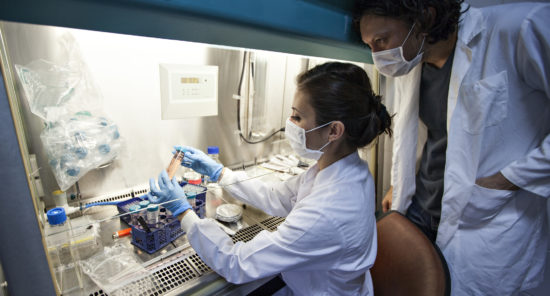In the HIBISCUS I trial, researchers found etrolizumab improved rate of remission compared with placebo in patients with active ulcerative colitis (UC); however, the advantage was not observed in the identical HIBISCUS II trial. The data were published in The Lancet Gastroenterology & Hepatology.
HIBISCUS I (n=652) and HIBISCUS II (n=613) were identical phase 3 trials that compared etrolizumab, adalimumab, and placebo in patients aged 18 to 80 years with moderate-to-severe active UC who had not previously received tumor necrosis factor inhibitors.
In HIBISCUS I, 28 out of 144 (19.4%) patients treated with etrolizumab achieved remission at 10 weeks compared with 5 out of 72 (6.9%) patients in the placebo group. In HIBISCUS II, 26 out of 143 (18.2%) patients in the etrolizumab group were in remission at week 10 compared with 8 out of 72 (11.1%) patients in the placebo group.
Pooled analyses did not find etrolizumab superior to adalimumab in terms of response, endoscopic improvement, and endoscopic or histological remission, though the authors did note that numerical outcomes were comparable between the treatment groups.
The authors concluded that etrolizumab was well tolerated in both trials, but they did not comment further on the discrepancy between the trials in remission outcomes vs placebo.
Reference: Rubin DT, Dotan I, DuVall A, et al. Etrolizumab versus adalimumab or placebo as induction therapy for moderately to severely active ulcerative colitis (HIBISCUS): two phase 3 randomised, controlled trials. Lancet Gastroenterol Hepatol. 2022;7(1):17-27. doi:10.1016/S2468-1253(21)00338-1. Published correction appears in Lancet Gastroenterol Hepatol. 2022 ;7(4):e8.
Link: https://www.thelancet.com/journals/langas/article/PIIS2468-1253(21)00338-1/fulltext








